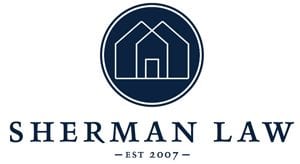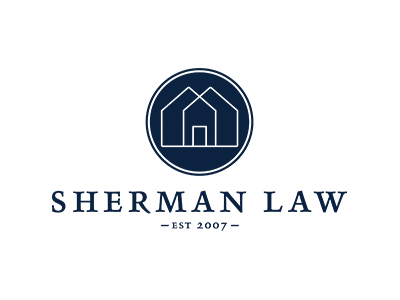There are two main “form” Purchase and Sale Agreements in the Greater Boston / Eastern Massachusetts area for single family homes. They are the Greater Boston Real Estate Board (GBREB) version which is approximately 30 paragraphs and then there is the Massachusetts Association of Realtors (MAR) version, which is approximately 23 paragraphs.
While the exact numbering may change from version to version, the below condensed version of the GBREB P&S is helpful to a Buyer as you can line up with the subject headings.
- Clause 1—Parties and Mailing Address: Please make sure your name(s) is spelled correctly and it is the exact name you want to own the property under.
- Clause 2—Description: exactly what is being sold. If a square footage for the land is listed, please make sure it what you are expecting to buy.
- Clause 3—Buildings, Structures, Improvements, Fixtures: This outlines what is included in the purchase. Pay close attention to how things like appliances, sheds, window treatments are to be handled. Speak up if this is not your understanding of the transaction.
- Clause 4—Title Deed: indicates that the Seller must delivery “good title”
- Clause 5—Plans: if the recording of a plan is needed to complete the sale, the seller agrees to. This rarely applies.
- Clause 6—Registered Title: Essentially, this states Seller must present a valid deed.
- Clause 7—Purchase Price: Please check this section CAREFULLY. You will find your initial deposit with the offer, the amount you are depositing at P&S signing, and the amount to be paid at the closing.
- Clause 8—Time For Performance; Delivery Of Deed: The date for the closing is provided. The time is usually just a guideline. The closing time and location are set about a week before the closing.
- Clause 9—Possession and Condition of Premises: The Seller must deliver the premises at closing in the same condition it was in at the signing of the P&S and in compliance with zoning, building laws, title, etc. This will not include reasonable wear and tear.
- Clause 10—Extension to Perfect Title or Make Premises Conform: allows the Seller to extend the closing for up to 30 days in order to make the property conform with the P&S. The Seller must act in good faith to cure any problems. A Buyer always needs to have this extension in the back of the Buyer’s mind and plan accordingly if there is a delay in the real estate closing.
- Clause 11—Failure to Perfect Title or Make Premises Conform: if the Seller cannot remove title defects within the 30 days, the Seller will return all deposits back to the Buyer, unless the Buyer is willing to close over the problem under Paragraph 12. This allows the Buyer to prevent the Seller from terminating the contract by accepting title in its current state.
- Clause 12—Buyer’s Election to Accept Title: instead of the Seller returning the Buyer’s deposit, the Buyer will have the option to close on the property anyway without a reduction in the purchase price.
- Clause 13—Acceptance of Deed: Once the transaction closes, the P&S becomes null and void, as the deal is final. This precludes the buyer from suing the Seller in most situations after the closing unless fraud or misrepresentation can be shown.
- Clause 14—Use Of Money To Clear Title: if there is a mortgage on the property, the Seller will have the closing attorney use their sale proceeds to pay off the mortgage or any other liens on the property.
- Clause 15—Insurance: The home insurance coverage for the property is described here.
- Clause 16—Adjustments: Because the closing may be mid-month, an adjustment will have to be made for taxes, some utility costs and most importantly, the value of any fuel oil left in the home fuel tank. If the home has oil, you will be required to reimburse the Seller at closing for the value of the oil.
- Clause 17—Adjustments of Unassessed and Abated Taxes: if the taxes for the current year have not been determined, and will not be known by the closing date, then the parties will adjust based on the previous year’s taxes and readjust later when taxes can be ascertained. These adjustments will appear on the first page of the HUD Settlement Statement (the spreadsheet listing all of the costs for both the Seller and Buyer that were associated with the transaction) at the closing.
- Clause 18—Broker’s Fee: specifies how much the Broker’s commission will be (paid from the seller’s proceeds unless otherwise agreed), and who is holding the deposits.
- Clause 19—Broker(s) Warranty: states that Massachusetts has licensed the Brokers.
- Clause 20—Deposit: specifies that the deposits are being held in escrow and that in the event of a disagreement the escrow agent may hold onto the deposit pending mutual instructions from the parties. In order to avoid liability, this allows the escrow agent to refuse to give the deposit to either party unless all parties release it in writing.
- Clause 21—Buyer’s Default; Damages: if the Buyer breaches the contract (doesn’t close), the Seller shall retain all deposits as “liquidated damages” (i.e., damages which the parties agree to at the beginning of a transaction).
- Clause 23—Release by Husband or Wife: The Seller agrees that their spouse will sign necessary documents
- Clause 23—Broker as Party: the Brokers agree to be bound by the P&S. However, no Broker would be bound unless they also sign the P&S as they have their own separate contract with the seller.
- Clause 24—Liability of Trustee, Shareholder, Beneficiary: if either party signs the agreement in a representative capacity, only the “principal,” and not the party signing, shall be bound (the principal is the person or entity for which the party is acting: the trust, the estate of the deceased, etc.).
- Clause 25—Warranties and Representations: Unless something to the contrary is included in the P&S, this clause states you are not relying on anything the Seller and their agent told you. Essentially, Buyer Beware.
- Clause 26—Mortgage Contingency Clause: This clause is HUGELY important. It is an “out” clause for the Buyer to get the deposit back if the Buyer is unable to secure a commitment from their lender for the mortgage. In order to exercise this clause, the Buyer must first apply for the mortgage by the specified date in this clause. And if there is an issue with obtaining the mortgage commitment, the Buyer must notify the Seller by the contingency date. Do not let this come down to the last minute. Typically, if the commitment is not yet available by the date, the date can be extended.
- Clause 27—Construction of this Agreement: This paragraph makes it clear that this is a binding contract subject to the laws of Massachusetts, and that it represents the entire agreement between the parties
- Clause 28—Lead Paint Law: If children under 6 will be living at the premises, any lead-based products must be removed or sufficiently contained by the new home owner.
- Clause 29—Smoke Detectors (and Carbon Monoxide): The Seller must provide a certificate at closing from the local fire department stating that the property has working smoke detectors and carbon monoxide detectors.
- Clause 30 – Additional Provisions: Any agreements that might not be covered by the standard language of the P&S would be inserted here such as home sale contingencies, radon, closing cost credit. Please double-check that any negotiated points in your offer were addressed somewhere in the P&S
About the author: The above Real Estate information on Massachusetts Settlement Agent was provided by Timothy Sherman, an active attorney in the real estate law field. Tim can be reached via email at tim@timshermanlaw.com or by phone at 781-664-4936. Attorney Sherman has helped people close on their homes in many Massachusetts cities and towns for the last 9+ Years.
Thinking of buying, selling or refinancing your home? I have a passion for Real Estate and love to share my legal expertise!
I handle closings throughout the South Shore and Greater Boston Area such as: Boston, Braintree, Canton, Cohasset, Dartmouth, Dedham, Duxbury, Fairhaven, Hanover, Hingham, Marshfield, Milton, Nantucket, Newton, Norwell, Plymouth, Quincy, Walpole, Wellesley, Westwood, Weymouth and Wrentham.

